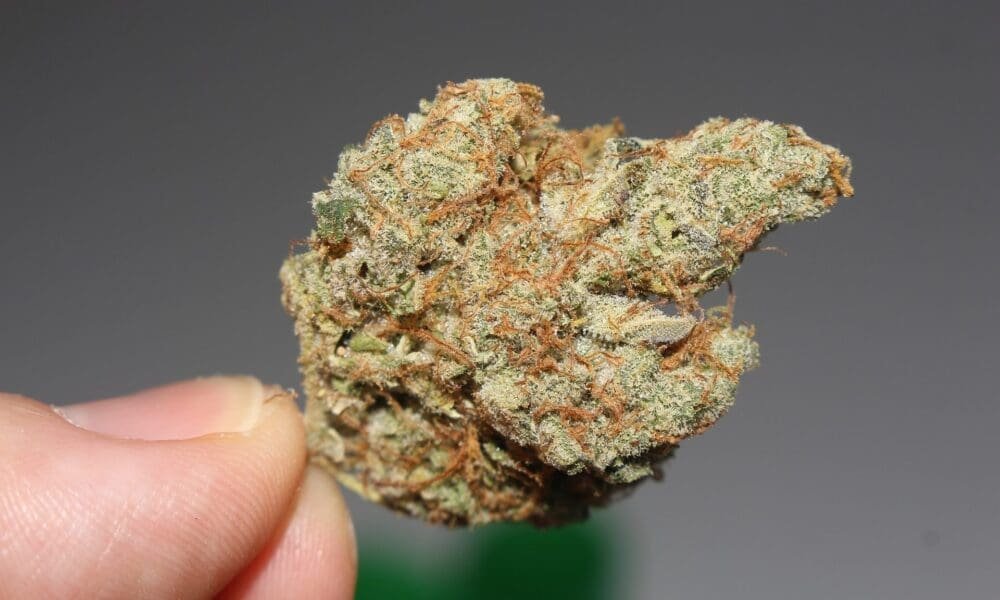Over the weekend, a Native American tribe opened Minnesota’s very first legal recreational marijuana shop outside of reservations. Moorhead’s new store will be joined by a location in St. Louis next month. White Earth Nation is also operating a store in Cloud.
As Minnesota’s market for adult-use marijuana gets off the ground, over a dozen municipalities and counties want to set up their own government-run shops.
Zach Wilson, the CEO of White Earth Nation’s cannabis company, Waabigwan Mashkiki told Minnesota Public Radio about the Moorhead shop.
Launch of new store comes after Gov. Tim Walz, DFL, signed a historic agreement with the tribe earlier this month that allows them to run up to 8 retail marijuana shops across the state.
Everything the store sells “is all completely vertical, seed to sale,” with products grown, processed and packaged by Waabigwan Mashkiki—which means flower medicine in Ojibway—Wilson said. Only our drinks are not manufactured by us. Everything else, however, is.
On the opening weekend, only beverages and smokeable flowers were available. Gummies, concentrates, and vape cartridges are expected in stock shortly. A QR code on each product provides information regarding the lab tests.
Adara Rutherford told MPR, the employee who works at the production facility of the Tribe, that “the business is one of only a few big businesses in the State right now which is third-party testing”.
The opening of the store was described by a visitor from Fargo in North Dakota as “a great thing for Minnesota.”
Damion Knudsen said, “I think people are starting to realize that cannabis is not as bad as they thought it was, when compared with everything else out there.” “It is the lesser evil.”
Notably, Minnesota’s 2023 cannabis legalization law allows tribes within the state to open marijuana businesses before state licensing of businesses begins. Following the law’s enactment, a number of tribal governments, including White Earth Nation, the Red Lake Band of Chippewa Indians and the Leech Lake Band of Ojibwe, made early moves to enter the market.
Minnesota officials said that a compact could be signed with another tribe in the next few weeks.
Nationwide, more than a quarter (26 percent) of the 358 federally recognized Indigenous communities in the continental U.S. are involved in some sort of cannabis program, according to a recently published infographic from the Indigenous Cannabis Industry Association (ICIA) and the law firm Vicente.
MPR says that, in terms of government-run shops to be opened soon, 13 counties and cities have already applied for permits. Anoka broke ground on its new facility worth $2.7 million last week, but the liquor and cannabis operations director of the city says that they are still waiting for final approval by the Office of Cannabis Management.
Kevin Morelli said to MPR that “we might wait around, but at the very least, we’ll be prepared, and will have this in hand and can hit ground running.”
St. Joseph, Osseo and other municipalities are also reportedly seeking dispensary licenses. They have yet to break ground for their facilities because they need to wait to receive the licenses.
Minnesota had a March 16 deadline for local government licenses. The 90-day window of approval began on that date. OCM’s representative stated that municipal shops are expected to open this summer.
Minnesota law allows local governments the ability to restrict the number of marijuana retailers within their jurisdiction, but it also requires that leaders allow at least 1 store per every 12 500 residents.
Anoka mayor Erik Skogquist said to MPR the city is interested in cannabis, just as it has been with alcohol. Since 1937, Anoka has reportedly operated in the liquor business.
“I believe the logic is similar. The city has the control and is responsible for ensuring that the operation is well-run, responsibly run, and the example is set. The financial aspect is a secondary part of the equation, said Anoka mayor Erik Skogquist.
Anoka’s dispensary isn’t expected to become profitable before its third year in operation.
Skogquist describes the store as an “opportunity for the city…to expand our existing enterprise and be able have this also, as well as potentially raising millions of dollars that we can utilize to cover such things as parks or some policing.
Separately in Minnesota, a state appeals court is set to decide whether state officials have the authority to prosecute tribal members for cannabis crimes committed on tribal land. This case involves a White Earth native who is accused of having sold cannabis at his tobacco store located on Mahnomen Reservation land.
Last month, meanwhile, state officials moved to delay a separate drug reform—the opening of safe drug consumption sites, meant to allow people to use drugs in a safer, supervised setting.
A representative from the Department of Human Services’ Behavioral Health Administration stated that “more work is needed on a federal and state level” before the services could be implemented safely for participants.
In March, lawmakers also filed legislation that would create a system to allow legal access to psilocybin for medical purposes. That came just days after the introduction of a separate bill that would legalize personal psilocybin use and possession among adults.
Far-Right Ally of Trump Takes Shot at New Psychedelics Focused Hire At Federal Health Agency




